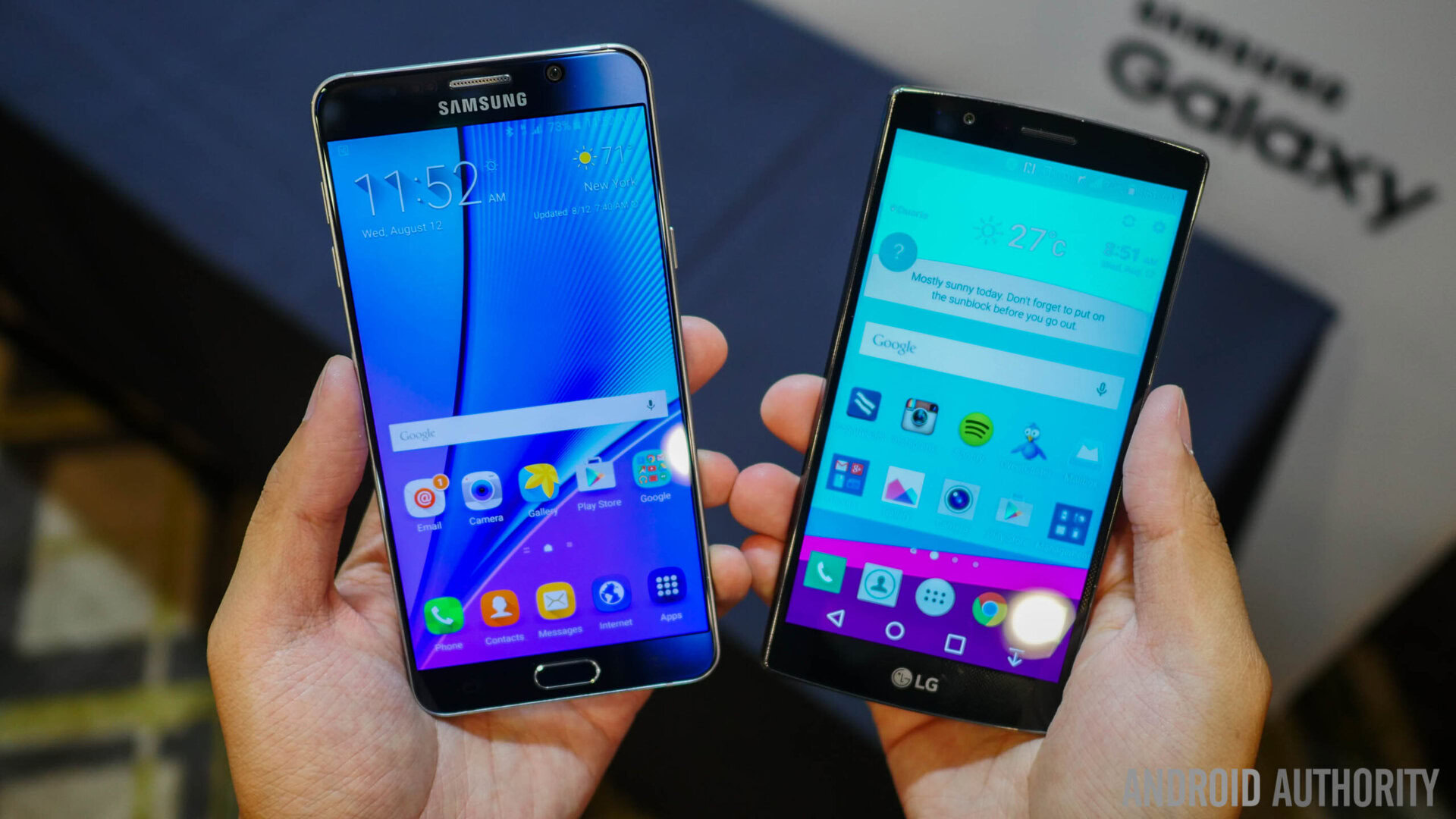Affiliate links on Android Authority may earn us a commission. Learn more.
New study claims smartphone addiction is similar to drug addiction

Can you be addicted to your smartphone? Various studies and polls have certainly suggested yes over the years. But how serious is this addiction? According to a Baylor University study, it can actually be as addicting as drugs and alcohol for some.
The head of the study, Professor James Robert, says that people can be addicted to behaviors and that habitual cellphone users can begin to depend on their phone in ways that seem quite similar to how people respond to drugs. For example, spending time away from the phone can make them feel anxious or panicky, looking a bit like withdrawal. A dead battery can cause right-out chaos and anxiety. Furthermore, a number of addicted smartphone users find that cellphone use can lift their moods, and that it takes an increasing amount of time to get the same level of enjoyment from their phone than it did when they first started using a smartphone.
According to a Baylor University study, it can actually be as addicting as drugs and alcohol for some.
Just as some drug users become so hooked that it puts a strain on their personal, social, and professional lives, the same can happen for true “smartphone addicts”. They can find themselves ignoring work, children, and other responsibilities just to check their Facebook feed one more time, or to play that extra bit of Clash of Clans. We’ve all seen the cell phone zombies walking (or bumping) across the road. Hell, we’ve probably almost hit one or two while driving (hopefully not because we were also on our phones…). So it’s pretty obvious addiction is real.

Of course, not everyone who uses a phone “a lot” is necessarily a ‘true addict’ to the point of concern. At the moment, there really isn’t a good scale for measuring all the factors involved in cell phone addiction. That said, for those who experiencing “withdrawal” when away from their phones and who find they are spending excess time with their mobiles, you might want to at least reevaluate your situation and decide if you’re spending too much time on your phone.
Honestly though, as long as it doesn’t get in the way of your personal or professional goals, you probably aren’t really ‘addicted’ to the level that the study reflects on. For the record, the average man is said to use his phone about 8.5 hours a day, with the average woman clocking in around 10 hours.
For those who would like a “detox” from their phone habits, there are at least a few apps that can help.
For those who would like a “detox” from their phone habits, there are at least a few apps that can help. While it seems a bit ironic and counterintuitive, a number of apps can be found on the Google Play store designed to keep us away from our phones. Probably one of the best known is called FlipD, which basically allows you to set periods of time where you are locked out of your phone. During those times you can only call three special contacts, and all messages are auto-responded with the message of your choice. Once per session you can get a 60-second “free pass” where you can check out Facebook or do something else you absolutely can’t wait on.
There are other apps out there that offer a similiar experience, though they may also focus on tracking how much time you spend, such as BreakFree and Phone Addict Free.
Do these apps actually help? Possibly, at least according to a Psychotherapist by the name of Robert Weiss. He says the best thing to do is first identify what it is you are craving from your phone: games, social media, work. Those are probably the real addiction issues. That said, he states that “using an app to calm yourself, distract yourself, soothe yourself is not the same as getting away from tech, but boy it’s a great way to take a few minutes out of your day and find some peace. Who doesn’t need that?”
Do you know anyone that is addicted to the point where it is unhealthy? Do you feel we rely too much on our mobile phones these days, or no? Let us know your thoughts in the comments.